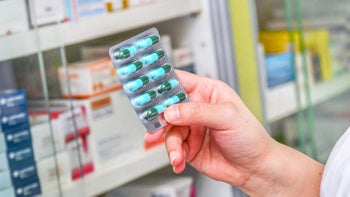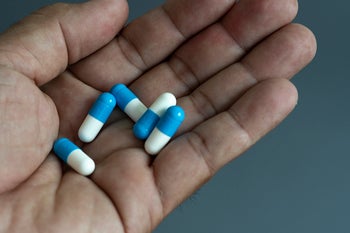
How Soon After Unprotected Sex Can You Test for Pregnancy?
Key takeaways:
A pregnancy test cannot detect a pregnancy until at least 2 weeks after you have unprotected sex.
For the most accurate result, it’s best to wait until the first day of your missed period.
The longer you wait before taking a test, the more accurate the result.
If your periods are irregular, it’s best to wait 2 to 3 weeks after having unprotected sex for a reliable pregnancy test result.
Table of contents
If you’re trying to get pregnant, it’s helpful to know when the best time is to test for pregnancy after having unprotected sex. After all, there’s little point in taking a test if you can’t trust the result. It can be tempting to test every day, or even several times a day, if you think you could be pregnant. But that strategy won’t give you the best answers.
So, if you’re wondering how soon a pregnancy test can be reliable, there are a few things to know. First, you’ll have to be patient. Second, it depends on the test and how regular your menstrual cycle is.
And finally, if you’re trying not to get pregnant, but your contraception failed, you don’t need to wait for a pregnancy test. You can take emergency contraception up to 5 days after you had sex to prevent a pregnancy.
Quiz: Am I pregnant?
When should you take a pregnancy test after unprotected sex?
If you’re hoping to get pregnant, the best time to take a pregnancy test is on the first day of your missed period.
That might seem like a long time to wait. But the earliest a pregnancy test could be positive is about 2 weeks after unprotected vaginal sex. That’s because you don’t get pregnant as soon as you have sex. It takes up to 1 week for the sperm to fertilize the egg, and about another week for the fertilized egg to implant into the uterus. Only after implantation will the female body produce the pregnancy hormone hCG (human chorionic gonadotropin). Pregnancy tests are positive if they detect hCG in the urine or blood.
If your periods tend to be irregular, waiting 2 to 3 weeks after unprotected sex is more likely to give you an accurate result.
Read more like this
Explore these related articles, suggested for readers like you.
If you don’t want to be pregnant
If you had unprotected sex and you don’t want to be pregnant, you don’t have to wait 2 weeks to find out. Emergency “morning after” contraception is available and stops a pregnancy before it starts. It works best in the first 3 days after you have unprotected sex, but you can take it up to 5 days after.
Types of pregnancy tests
There are two types of pregnancy tests. Both test for the pregnancy hormone, hCG. One is a urine test, the other a blood test.
Urine pregnancy test
This is the most common type of test. It has many advantages:
Easy to access
Available in most drug and grocery stores, health clinics, hospitals, and at your healthcare professional’s office
You can take the test at home.
Inexpensive, or even free of charge by some organizations
Gives you an immediate result
97%-99% accurate when used correctly
Blood pregnancy test
This is a less commonly used pregnancy test, as it requires a blood draw by a healthcare professional. It’s more expensive, and you’ll have to wait for a result. But it does have some advantages over the urine test:
Can detect pregnancy slightly earlier than a urine test, as early as 10 days after unprotected sex
Considered the gold standard of pregnancy tests
What is the best time to take a pregnancy test?
The best time to take an at-home urine pregnancy test is first thing in the morning. That’s because your urine is the most concentrated right when you wake up from a night’s sleep, before you drink anything. The more concentrated the urine, the easier it is to detect hCG if you’re pregnant.
If you want to test during the day, try to wait at least 3 hours after you go pee to test. This will help concentrate your urine, and make your test result more reliable.
What are the earliest signs of pregnancy?
Taking a pregnancy test is the best way to know if you’re pregnant. But it’s not the only way.
The body gives some helpful signs, too.
The most common early sign of pregnancy is a missed period, especially if you usually have a regular cycle. You might also start feeling some subtle changes in your body before you get a positive pregnancy test.
Here are some of the most common early signs of pregnancy:
Nausea, especially if it happens without vomiting
Food cravings or aversions
Breast fullness or tenderness
Abdominal bloating
Fatigue
Light spotting
How many pregnancy tests should you take?
If you take a test after the first day of your missed period and you get a positive result, you can be confident that you’re pregnant. There’s no need to take any more tests. At this point, call a healthcare professional to make an appointment.
If you got a negative result but feel some early signs of pregnancy, then it’s reasonable to test again in a few days. Here’s why: Once a fertilized egg implants in the uterus, hCG rises fast. In fact, it doubles about every 2 days.
So, if you’ve missed a period and had a negative pregnancy test, take another pregnancy test 2 to 3 days later. If it’s still negative and you still don’t have your period, you likely aren’t pregnant.
When should you see a doctor about a possible pregnancy?
The timing for talking with a healthcare professional about a possible pregnancy depends on your own plans to become pregnant. Here are different scenarios to help guide you:
You have a positive pregnancy test and you want to be pregnant
Once you have a positive pregnancy test, call your healthcare professional to schedule an appointment.
Typically, the first prenatal visit is scheduled about 8 weeks after your last period.
You’re worried you could be pregnant and you don’t want to be
If you’ve had unprotected penis-in-vagina sex or your contraception failed and you don’t want to become pregnant, see a healthcare professional or visit a local pharmacy quickly, within days.
Morning-after pills, like Plan B (levonorgestrel ), are available without a prescription and can prevent pregnancy before it starts.
You have a positive pregnancy test but you don’t want to be pregnant
Reach out to a healthcare professional as soon as possible to confirm the pregnancy.
Discuss your options with a healthcare professional you trust.
If you're thinking about abortion, you’ll need to find out what your options are. These will depend on where you live and how far along your pregnancy is.
Whatever your unique situation, help and resources are available.
You’re not pregnant, but you’re thinking about getting pregnant
The best time to see a healthcare professional about a possible pregnancy is when you’re considering getting pregnant.
Caring for yourself and your baby during pregnancy starts before conception. This includes limiting alcohol and tobacco, taking supplements like folic acid, and reviewing any medications you take that may affect your pregnancy.
You want to prevent pregnancy
If you’re sexually active and want to avoid pregnancy, discussing birth control options with your healthcare professional is important.
Various birth control methods have different levels of effectiveness and suitability.
A healthcare professional can help you find the best contraception for your specific needs.
The bottom line
The most accurate time to take a pregnancy test is after the first day of your missed period, or at least 2 weeks after having unprotected vaginal sex. A blood test can detect pregnancy a few days earlier than a urine test. If you get a negative result, but you think you could be pregnant, take another test in a few days if you still don’t get your period.
Why trust our experts?


References
American Pregnancy Association. (n.d.). Early signs of pregnancy.
American Pregnancy Association. (n.d.). Pregnancy tests – Urine and blood.
Better Health Channel. (n.d.). Pregnancy testing. Victoria State Government.
Centers for Disease Control and Prevention. (2023). Contraception.
Centers for Disease Control and Prevention. (2023). Planning for pregnancy.
National Health Service. (2022). Doing a pregnancy test.
Nickmans, S., et al. (2014). Performance of qualitative urinary hCG assays. Acta Clinica Belgica.
Planned Parenthood. (n.d.). Pregnancy tests.
Vrettakos, C., et al. (2023). Levonorgestrel. StatPearls.




























